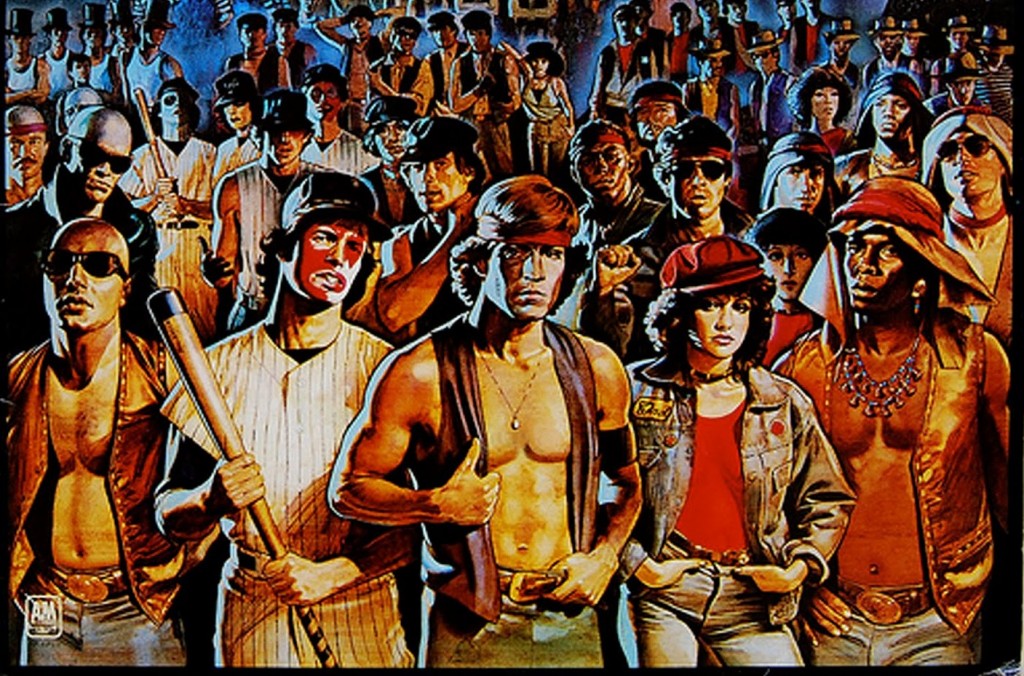Music
Underrated Classics: ‘The Warriors’ soundtrack

Each week in Underrated Classics, Cory Clifford digs deeper into the annals of music history to recommend essential unsung acts that have yet to even find a sustained cult appeal.
Growing up in the 90s, one thing that I personally loved about that era of filmmaking was its emphasis on creating the perfect soundtrack. Reality Bites with their collage of Gen-X music staples, Juice and the film’s early hardcore classics, both are great examples of popular films of the 90s that are almost just as compelling musically as well as cinematically. One director that has, in most cases, recognized this point-of-view perfectly is Quentin Tarantino, specifically his films that pay tribute to the overlooked culture of exploitation films from the 60s and 70s. But when you look back in film history, those exploitation films and grindhouse features really were the first films to heavily pack a movie with contemporary classics. Look back at a movie like The Harder They Come or Superfly and what those film’s soundtracks did for the careers of Curtis Mayfield and Jimmy Cliff. Or how Easy Rider might be the reason that Steppenwolf were such a huge band in the late 60s/early 70s.
Soundtracks were integral to exploitation films, seeing as how professional composers were incredibly expensive in the day (and presumably still are today). One of the 70s last great exploitation films, The Warriors is perhaps one of the best examples of a movie that had a brilliantly relevant soundtrack, and what Pauline Kael of The New Yorker claimed “a real moviemaker’s movie,” and is “like visual rock.” The soundtrack of the classic gang film is truly outstanding, but surprisingly overlooked. So I decided to randomly take a look at one of my favorite 70s films and it’s retro-futuristic scores, as well as its funky, diverse, and rockin’ collection of soundtrack artists.
The movie’s score was done by progressive disco-auteur Barry Vorzon, and on three separate musical pieces, he perfectly captured a culmination of Canterbury-style rock with the futurism of electro-disco that helped carry the film terrifically. The first of these scores is the main theme, and it’s full of funk elements like pulsating drums, blues-bar keys and an incredible bassline, but also boasts quite a bit of pounding distorted guitar as well as interesting and vivacious studio effects. The soundtrack gets your feet moving with Arnold McCuller’s funk-rock classic “Nowhere To Run,” a song that in the movie the D.J. plays to warn the ragtag bunch of “Warriors” that there’s a legion of New York City street-gangs head-hunting the Coney Island youths.
Kenny Vance of Jay & The Americans sings a latin-funk gem “In Havana,” with Afro-Cuban singer Ismael Miranda, beautifully, and the song oddly enough even has backup vocals from comedy-actor Chevy Chase. New York funk band Mandrill sing the groovy number “Echoes In My Mind,” the perfect ghetto soundtrack for the serious exhaustion the Warriors endure from being chased around the entire city by gangland’s elite. The song has brilliant Rhodes-piano, and the bass and drums create a moody, but toe-tapping atmosphere. The second score of Barry Vorzon’s comes with “The Fight,” a song that soundtracks The Warriors fight with the skate-clad Punks, under the Bowery subway station. “The Fight” is an extension of the theme but with heavier drums and a punkier, more vicious guitar lead. The song perfectly captures the fury of the Warriors last real fight scene of the movie.
The biggest highlight of the soundtrack comes with the credits-closing “In The City”, by The Eagles’ brilliant goofball, Joe Walsh. The song was originally co-written by Walsh and Barry Vorzon, and it’s still one of the finest lyrical representations of the difficulties of the late-20th century city life with “I was born here in the city/With my back against the wall /Nothing grows and life ain’t very pretty/No one’s there to catch you when you fall.” The song eventually became a hit for The Eagles, after they featured it on their platinum-selling record The Long Run.
Solo songstress Genya Ravan sings the tough rock-minor “Love Is A Fire,” which boasts an amazing guitar solo and a heavy set of backup vocalists. The creepy “Baseball Furies Chase,” Vorzon’s third, transitions perfectly into the last two songs, the pub rocking “You’re Moving Too Slow” by Johnny Vastano, and Desmond Child’s brilliant “Last of An Ancient Breed”. “Last of An Ancient Breed” is perhaps most specifically targeted for the film, with lines like “Teen angels leave the lamp post light/in an alley by the river in the dead of night” and in the chorus “Warriors, makin’ life a fantasy/all this time, we’ll ride the devil’s steed.”
The Warriors soundtrack is packed with could-have-been hits, and in the pantheon of film soundtrack discussion, I don’t think I’ve ever encountered anyone mention this brilliant action film’s classic movement of songs. The songs of this soundtrack may seem cheesy to today’s youth, but if you put yourself in the shoes of 70s youth, The Warriors had a soundtrack of daring coercion and city-life narration. Despite the soundtrack being reissued to CD over the years (mostly due to the movie’s cult-following and video game adaptation), it still seems quite underrated. Soundtracks are definitely difficult to review, especially in relation to film. However, what I have to say about The Warriors is that it’s one of the late-70s most entertaining films, and it’s packed with one of the most diverse, lively and enamored soundtracks of the 20th century.